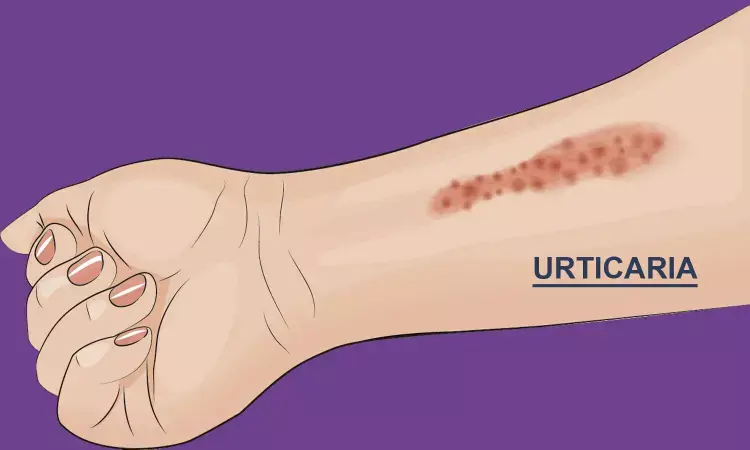- Home
- Medical news & Guidelines
- Anesthesiology
- Cardiology and CTVS
- Critical Care
- Dentistry
- Dermatology
- Diabetes and Endocrinology
- ENT
- Gastroenterology
- Medicine
- Nephrology
- Neurology
- Obstretics-Gynaecology
- Oncology
- Ophthalmology
- Orthopaedics
- Pediatrics-Neonatology
- Psychiatry
- Pulmonology
- Radiology
- Surgery
- Urology
- Laboratory Medicine
- Diet
- Nursing
- Paramedical
- Physiotherapy
- Health news
- Fact Check
- Bone Health Fact Check
- Brain Health Fact Check
- Cancer Related Fact Check
- Child Care Fact Check
- Dental and oral health fact check
- Diabetes and metabolic health fact check
- Diet and Nutrition Fact Check
- Eye and ENT Care Fact Check
- Fitness fact check
- Gut health fact check
- Heart health fact check
- Kidney health fact check
- Medical education fact check
- Men's health fact check
- Respiratory fact check
- Skin and hair care fact check
- Vaccine and Immunization fact check
- Women's health fact check
- AYUSH
- State News
- Andaman and Nicobar Islands
- Andhra Pradesh
- Arunachal Pradesh
- Assam
- Bihar
- Chandigarh
- Chattisgarh
- Dadra and Nagar Haveli
- Daman and Diu
- Delhi
- Goa
- Gujarat
- Haryana
- Himachal Pradesh
- Jammu & Kashmir
- Jharkhand
- Karnataka
- Kerala
- Ladakh
- Lakshadweep
- Madhya Pradesh
- Maharashtra
- Manipur
- Meghalaya
- Mizoram
- Nagaland
- Odisha
- Puducherry
- Punjab
- Rajasthan
- Sikkim
- Tamil Nadu
- Telangana
- Tripura
- Uttar Pradesh
- Uttrakhand
- West Bengal
- Medical Education
- Industry
Dupilumab improves urticaria activity and QoL in patients with chronic spontaneous urticaria

USA: A recent study has found that patients with chronic spontaneous urticaria treated with dupilumab experienced a significant improvement in quality of life and reduced urticaria activity.
The study showed that dupilumab treatment improved Dermatology Life Quality Index (DLQI) and activity rankings for chronic spontaneous urticaria (CSU) patients.
The data was presented at the American Academy of Allergy, Asthma & Immunology (AAAAI) 2023 Annual Meeting in San Antonio, TX, and simultaneously published in the Journal of Allergy and Clinical Immunology.
Chronic spontaneous urticaria, a chronic inflammatory illness, is characterized by the recurrence of angioedema and itchy wheals that may continue for over six weeks and negatively impacts a patient's quality of life. Unfortunately, many patients continue to suffer from CSU symptoms despite treatment with H1-antihistamines.
Marcus Maurer, Charite-Universitatsmedizin Berlin, Germany, and colleagues to evaluate dupilumab's effectiveness and safety in treating chronic spontaneous urticaria patients aged ≥6 years who had remained symptomatic although they had taken H1-antihistamines in phase 3 clinical trial titled LIBERTY-CSU CUPID Study A.
Patients on an H1-antihistamine (up to fourfold approved dose) were randomized to receive add-on dupilumab 300 mg (adults/adolescents ≥60 kg) or 200 mg (adolescents <60 kg/children ≥30 kg) (n=70) or matching placebo (n=68) subcutaneously every two weeks.
The trial was conducted for 24 weeks, and the treatment's efficacy was evaluated based on the Urticaria Activity Score over a week (UAS7; score range: 0-42). Quality of life outcomes was measured for patients >16 years old using the DLQI, with a range of 0-30; higher scores indicated lower life quality.
The authors reported the following findings:
- The mean UAS7 values at baseline for dupilumab and placebo were 31.9 and 30.8, respectively.
- After 24 weeks, the least squares (LS) mean change from baseline was significantly greater for patients given dupilumab than those given the placebo, with values of -20.5 and -12.0, respectively.
- The difference between both groups was -8.5. The mean DLQI scores at baseline for dupilumab and placebo were also 13.5 and 15.3, respectively.
- At 24 weeks, the team noted the LS mean change from baseline as being substantially greater for dupilumab patients than for those given the placebo, with values of -10.8 and -7.6, respectively. The difference between the two groups was -3.2.
"Our findings suggest that Patients with CSU treated with dupilumab experienced a significant improvement in quality of life, as measured by DLQI, and a reduction in urticaria activity, as measured by UAS," the researchers conclude.
Reference:
The study "Dupilumab Improves Urticaria Activity And Quality Of Life In Patients With Chronic Spontaneous Urticaria (CSU) was published in the Journal of Allergy and Clinical Immunology.
DOI: https://doi.org/10.1016/j.jaci.2022.12.31
Dr Kamal Kant Kohli-MBBS, DTCD- a chest specialist with more than 30 years of practice and a flair for writing clinical articles, Dr Kamal Kant Kohli joined Medical Dialogues as a Chief Editor of Medical News. Besides writing articles, as an editor, he proofreads and verifies all the medical content published on Medical Dialogues including those coming from journals, studies,medical conferences,guidelines etc. Email: drkohli@medicaldialogues.in. Contact no. 011-43720751


